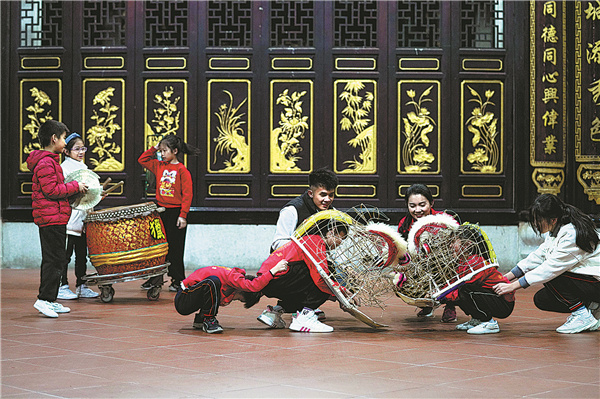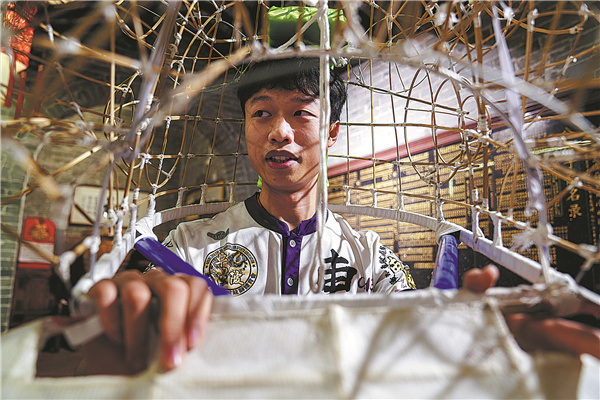Dancing to the beat of the drum


In Qingchuan Sugong Temple in Chebei village, Guangzhou, South China's Guangdong province, drums beat methodically, as a group of students practice lion dancing. It was bitterly cold and windy outside the ancestral hall, but inside was warm and action-packed. The hall was not heated with radiators or electric fires, but the teenagers used their passion for dance to dispel the chill of winter.
Similar scenes were taking place in Tianhe district, Guangzhou, where there are dragon and lion teams in almost every village. Walking into many urban villages such as Shipai, Chebei and Liede, you will be pleasantly surprised to find a group of "lion" dancers.
Half squatting, straightening the waist, raising both hands horizontally-"time starts". The older sister gave an order, and the members of the Chebei Dragon and Lion Sports Association quickly adopted their equine stance. The clock on the wall was ticking, slowly, and some of the team members were feeling the strain. Their legs began to buckle slightly.

Ling Xueqian, 21, acted in a standard manner and remained motionless until the older sister ordered stop. This is Ling's sixth year of practicing lion dance. "Only by practicing the basic skills can you get to the lion's head," he says.
Ling was fascinated when he saw a lion dance on the street when he was a teen. He then joined the dragon and lion team in the village. In high school, Ling trained after class, and he was given a chance to become the lion's head after three months with the team. He had to bear the pressure of his parents' opposition and practice secretly. But he still faced obstacles, not least parental disapproval. Despite this, Ling did not give up. "It is because of practicing the lion dance that I learned to persevere," he says. He had never been so persistent in any other thing. Lion dance has become an integral part of his life.




































